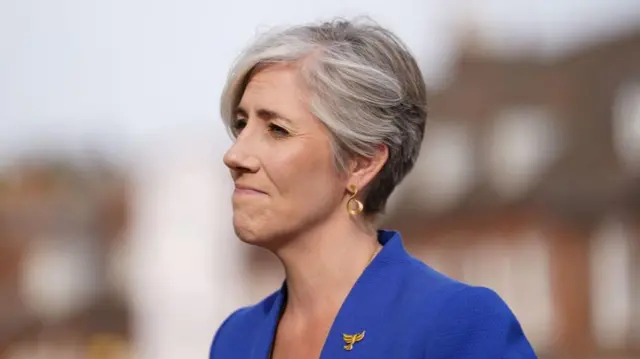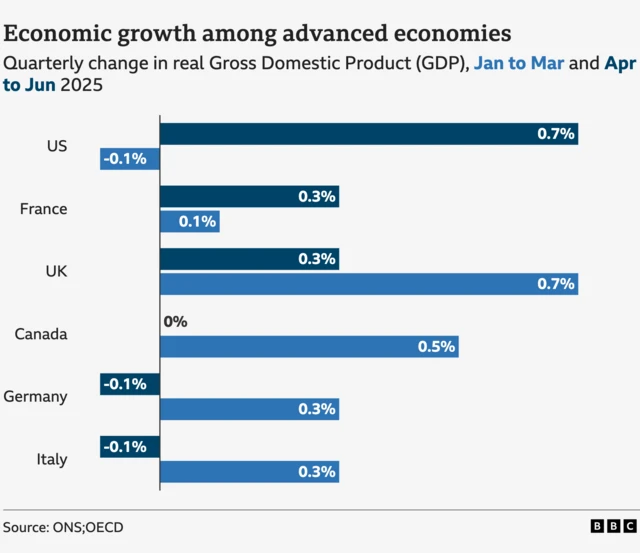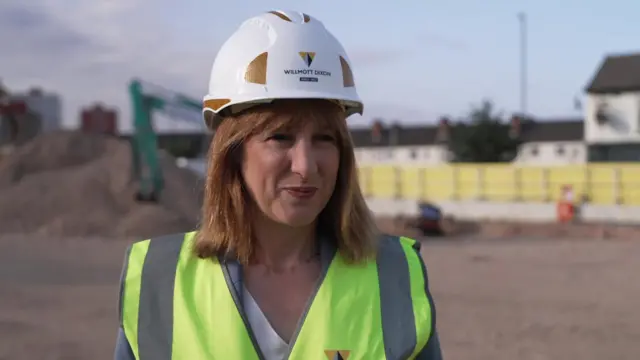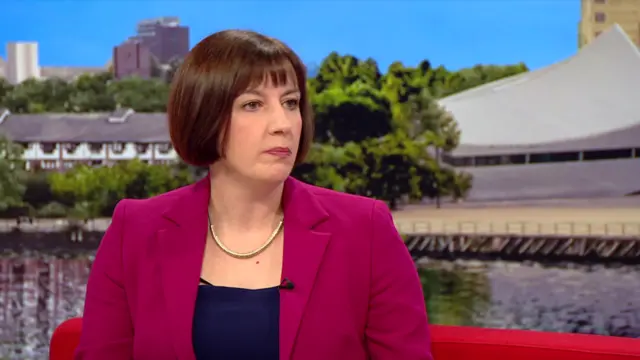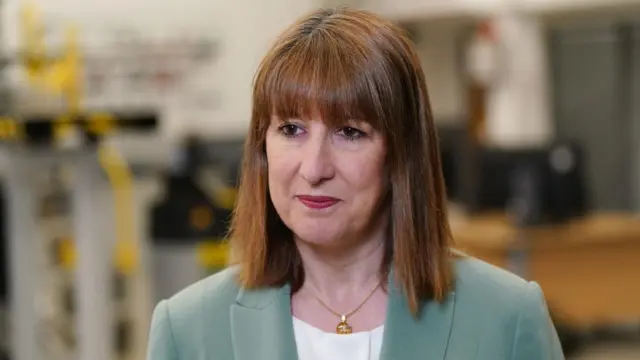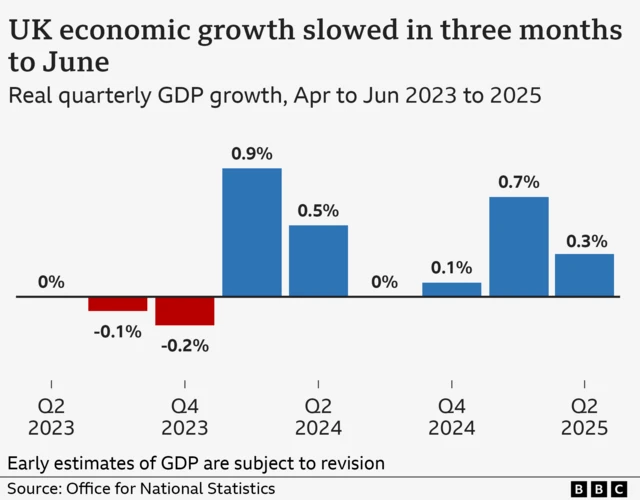The UK's economy has slowed, but growth figures are better than expectedpublished at 08:54 BST 14 August
 Jennifer Meierhans
Jennifer Meierhans
Business reporter
We are going to bring our live reporting of the UK economy to a close so here's a quick recap of what we've covered this morning.
- The headline: UK economic growth slowed in the second quarter of the year to 0.3%
- The detail: This was better than economists had forecast but still marks a slowdown from 0.7% growth in the first quarter
- The why: In the first quarter of the year there was a rise in exports and house sales before US tariffs and stamp duty hike kicked in - that had fallen away in the second quarter
- The politics: Chancellor Rachel Reeves says the figures show "continued growth...but there is more to do" but shadow chancellor Mel Stride accused her of "economic vandalism". Meanwhile, Lib Dem Treasury spokesperson Daisy Cooper says “snails would scoff at the pace that our economy is growing".
- What's next: The health of the economy will continue to be closely watched ahead of the autumn Budget when the chancellor will announce her tax and spending choices.
You can continue to follow the latest updates in my colleague Tom Espiner's story: UK economic growth slows but beats forecasts

